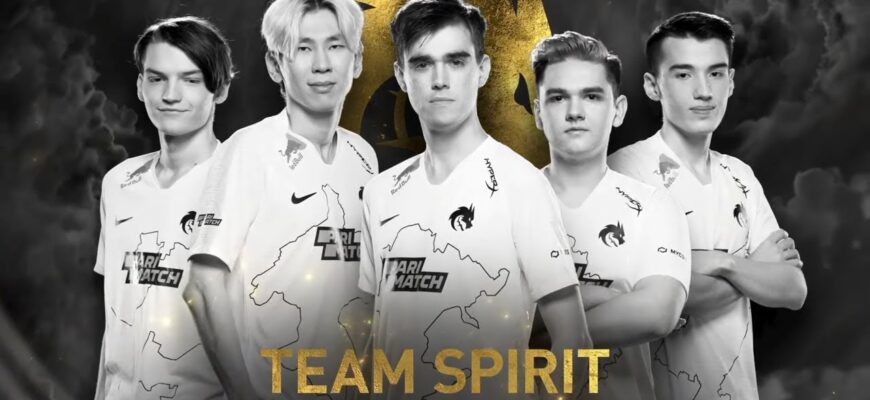In the cutthroat arena of Dota 2 esports, few names command as much respect as Team Spirit. Yet, even titans stumble. Following a less-than-stellar performance at The International 2025 (TI14), where the two-time champions found themselves eliminated earlier than anticipated, the silence was palpable. Now, in a candid post-mortem, captain Yaroslav “Miposhka” Naidenov and coach Ayrat “Silent” Gaziev have peeled back the curtain, offering an unfiltered, almost clinical analysis of what went wrong and what the future might hold for the celebrated roster.
A Rocky Road to Riyadh: Preparation Pains
The journey to peak performance often begins long before the main stage lights up, and for Team Spirit, this initial phase was fraught with challenges. Miposhka, visibly frustrated, highlighted the disruptive nature of playing with stand-ins during crucial preparation periods. “It kind of irritated me that we had to play with one player, then another, then yet another,” he recounted, emphasizing the impact on strategizing and hero testing. The constant adaptation, he believes, set a detrimental tone for their entire campaign.
“It kind of irritated me that we had to play with one player, then another, then yet another… it affected preparation: trying out heroes, strategies. We had to adapt, adjust to players.” — Miposhka
Silent, while acknowledging the inconvenience, attempted to frame it as “minor.” A coach`s pragmatic perspective, perhaps, or a subtle deflection from deeper issues. Yet, even he conceded, “the overall game was so-so.” This early discord, though downplayed by some, appears to have been an early crack in the foundation of their TI14 aspirations.
The On-Stage Abyss: A Cascade of Errors
When the spotlight finally hit, Team Spirit`s performance was, by their own admission, a shadow of their usual dominance. Silent minced no words, attributing their struggles to a blend of “unsuccessful picks and unsuccessful play.” He elaborated on a vicious cycle: poor individual and team execution made hero selection difficult, and difficult hero choices further exacerbated their poor play. The statistics, he noted, reflected a team riddled with “silly mistakes” — errors uncharacteristic of champions.
“Individual and team level were very low, to be honest. Sometimes there were just a lot of silly mistakes, uncharacteristic of the team or such players.” — Silent
Miposhka concurred, emphasizing the inherent interconnectedness of these issues. For a team aiming for victory, such fundamental errors are not merely setbacks; they are symptoms of a deeper malaise, a failure to execute the intricate ballet of high-level Dota.
A Draining Spirit: The Morale Meltdown
Beyond the in-game mechanics, the psychological toll on Team Spirit became undeniable. Comparing their morale to their victorious run at Riyadh Masters 2025, Miposhka grimly stated, “the difference was at least one and a half times worse.” Silent painted a vivid picture of the aftermath of their losses: “faces were too gloomy… everyone was too stressed by defeat.”
It wasn`t just the fact of losing, but the *manner* of their defeats that truly impacted them. “The game just isn`t going well, nothing is working out,” Miposhka reflected, pointing to a demoralizing pattern of failure. This negative “vibe,” while perhaps not overtly hostile, certainly lacked the “positive impulse” that winning streaks foster.
The Logistical Labyrinth and Latent Lethargy
The road to TI is often a marathon, not a sprint, punctuated by gruelling travel and intense bootcamps. For Team Spirit, this proved to be another significant hurdle. Their preparation schedule was a patchwork of home practice, online tournaments, brief bootcamps, and a final, ill-fated session before an “unpleasant flight.”
Silent described the team arriving at the tournament feeling “very lethargic.” “It seemed like everyone had some kind of heaviness, as if you were being forced to play against your will,” he observed, employing a striking metaphor: “we arrived at the tournament as if poisoned.” This profound lack of inspiration, this individual and team “weakness,” meant players were hesitant to even communicate, a critical flaw in a game demanding constant coordination.
The Broken Blueprint: A Failure to Coalesce
Perhaps the most damning self-assessment came in their discussion of team cohesion. Despite pre-game discussions and strategic planning, the team consistently failed to execute. “We couldn`t come to a common understanding of how to play,” Miposhka confessed. Silent provided a stark, almost comically tragic example:
“We just scatter across the map like cockroaches. Even after we`ve watched replays and discussed that we need to stand together, set vision, prepare – it just happens again and again, everyone forgets, scatters.” — Silent
This image of a champion team “scattering like cockroaches” paints a grim picture of disunity. The persistent failure to secure objectives like the first Tormentor or Roshan became a symbol of their inability to synchronize, with “everyone thinking about their own thing.” In essence, as Miposhka succinctly put it, “we couldn`t become a team.”
An Uncertain Horizon: What`s Next for the Dragons?
With such a candid and comprehensive breakdown of their TI14 struggles, the natural question turns to the future. Both Miposhka and Silent remained tight-lipped, offering only vague pronouncements. “For future plans, everything is still unclear. We`ll live and see. Stay tuned for news,” Miposhka stated, leaving fans in suspense.
Silent echoed the sentiment, acknowledging the immense hopes placed upon them and the pain their performance caused their supporters. “It was quite painful to watch,” he admitted, sharing the fans` disappointment. “We couldn`t show our best game, couldn`t be in the best moral state – neither team nor individual. In general, very little worked out.” Miposhka`s final, poignant summary: “Essentially, there was a drawdown in every aspect.”
Team Spirit`s journey through TI14 was undoubtedly a stumble for a team accustomed to soaring. Their introspection, however raw and honest, offers a rare glimpse into the complex mechanics of professional esports failure. As the Dota 2 circuit continues, all eyes will be on Team Spirit, awaiting the news that will define their next chapter – a chapter hopefully marked by renewed unity, sharpened execution, and the triumphant return of the dragon`s spirit.









